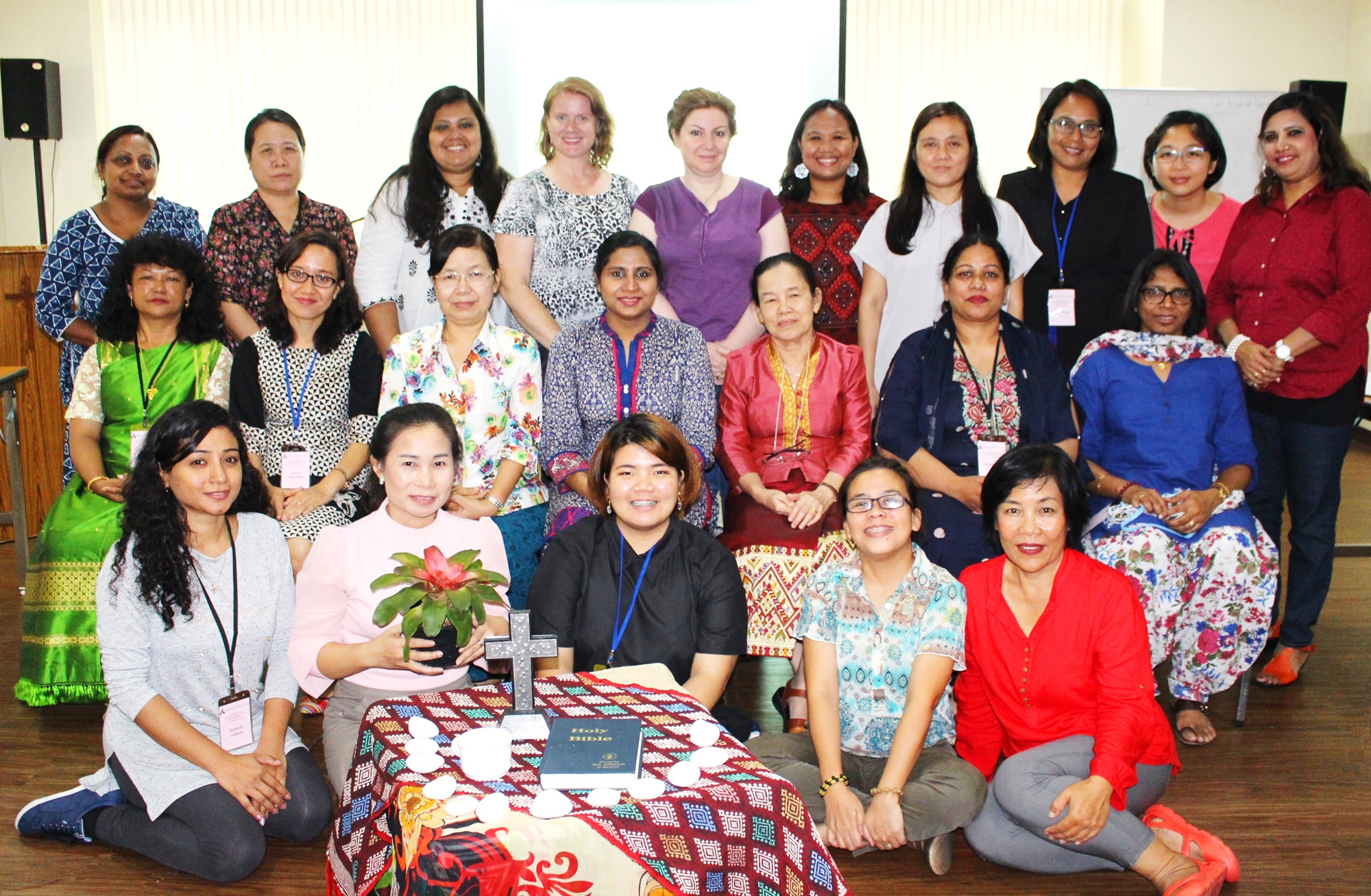Asian church women strategise ecumenical advocacy action against violence
 Participants of the Asia Regional consultation on EWAAV — July 2017.
Participants of the Asia Regional consultation on EWAAV — July 2017.
Twenty-four church women from the Christian Conference of Asia’s (CCA) network, ‘Ecumenical Women’s Action Against Violence (EWAAV)’ met in Bangkok, Thailand from 16 to 20 July 2017 at an Asia regional consultation to work out strategies for ecumenical advocacy action to combat violence against women.
The participants of the consultation developed action plans to implement national programmes in their respective countries in order to promote and strengthen ecumenical women networks.
A one-year plan was formulated to hold a month of prayer dedicated to one Asian country each, focusing on ending violence against women.
During the three-day workshop, the participants presented case studies of gender-based violence in their local contexts and mapped the capacity-building needs for EWAAV’s advocacy initiatives. A special emphasis was placed on the importance of involving women church leaders to participate in peacebuilding processes, especially involving and joining hands with the civil society in national and local contexts.
The participants identified human trafficking as major issue that perpetuated violence in Southeast Asian countries, particularly in the Philippines, Myanmar, and Indonesia.
Reputed international and regional organisations, such as the Partners for Prevention: Working to Prevent Gender-based Violence United Nations Development Programme, the United Nations Population Fund (UNFPA), the United Nations Women & the United Nations Volunteers (UNV) Regional Joint Programme for Asia and the Pacific; the United Nations Actions for Cooperation in Trafficking of Persons; and, the United Nations Children's Fund (UNICEF) facilitated various sessions during the consultation, and assured their support to and collaboration with CCA’s regional network, EWAAV.
The Asia regional consultation was held as part of CCA’s follow-up on strengthening the capacity of the EWAAV network, which was launched at a regional consultation organised by the CCA, under the theme, ‘Women Building Peace and Transforming the World’ in Chiang Mai, Thailand on 20 November 2016.
“Violence can only be prevented when we make our homes non-violent places; when we ensure that it is not affecting our generations. Each segment of society has to play its role in preventing violence and consciously assist women and children in such appalling situations in order to redress their lives,” said Mrs. Sunila Ammar, Coordinator of CCA’s project on EWAAV.
Mrs. Ammar further added that, “re-interpreting the Bible in the context of empowering women and giving them a voice is crucial to the process of eliminating violence against women in Asia societies.”
The CCA places a strong focus on its women’s programmes, based on themes of leadership development and empowerment of women in church and society, advocacy on the prevention of violence against women, protecting the rights of women migrant workers, and combating the trafficking of women and children.











